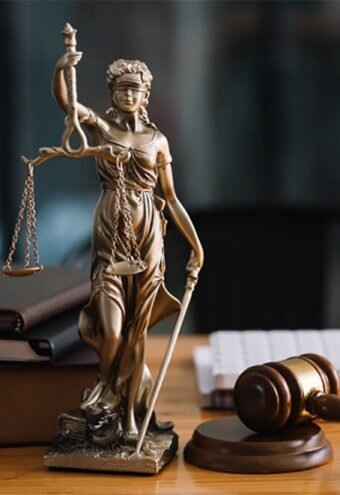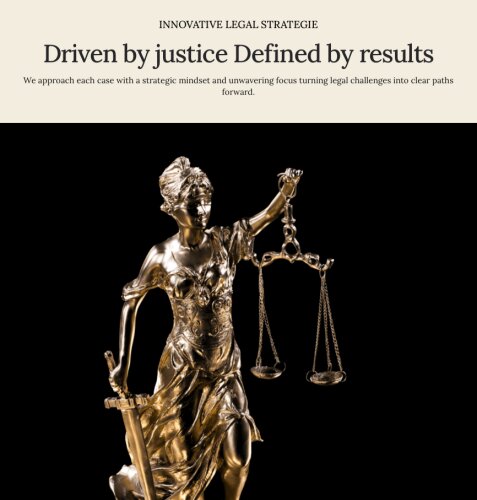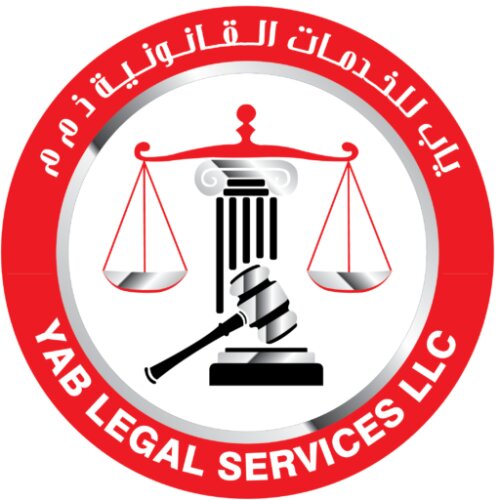Best Arrests & Searches Lawyers in United Arab Emirates
Share your needs with us, get contacted by law firms.
Free. Takes 2 min.
Or refine your search by selecting a city:
List of the best lawyers in United Arab Emirates
About Arrests & Searches Law in United Arab Emirates
The legal framework governing arrests and searches in the United Arab Emirates (UAE) is rooted in federal laws, which apply across all seven emirates. The UAE places significant emphasis on maintaining public order and security, resulting in strict regulations concerning arrests and searches. These laws are designed to balance the need for law enforcement with individual rights. Police and other relevant authorities have specific powers to conduct searches and make arrests, but these actions are subject to legal procedures to ensure fairness and justice are upheld.
Why You May Need a Lawyer
Individuals may require legal assistance regarding arrests and searches for several reasons. Common situations include being arrested or detained by police, having your premises searched, facing legal charges as a result of a search, or needing guidance on your rights during a police investigation. In such cases, a lawyer can provide critical guidance, help navigate the complexities of local laws, ensure your rights are protected, and offer representation in legal proceedings if necessary.
Local Laws Overview
The UAE's legal system incorporates Islamic law, also known as Sharia, as well as aspects of civil and commercial law. Key aspects relevant to arrests and searches include:
- Probable Cause: Authorities must have reasonable grounds to conduct a search or make an arrest.
- Warrants: In most cases, a warrant issued by a competent judicial authority is required to conduct searches or make arrests.
- Search and Seizure: The law outlines specific procedures law enforcement must follow when conducting searches and seizing evidence.
- Detention: The law provides clear guidelines on detention durations and procedures, including the requirement to inform a detainee of their rights.
Understanding these laws can help individuals know what to expect during legal proceedings related to arrests and searches.
Frequently Asked Questions
What are my rights if I am arrested in the UAE?
Individuals have the right to be informed of the charges against them, to consult with a lawyer, and to contact their family or consulate.
What constitutes a legal search by the police?
A search is legal if it is conducted with a warrant, or without a warrant but under circumstances that qualify as exceptions defined by law, such as exposure to immediate danger.
Can the police search my home without a warrant in the UAE?
Generally, a warrant is required; however, in cases of immediate risk or danger, police may conduct a search without a warrant.
How long can I be detained without being charged?
The legal limit for detention without charge is typically 48 hours, but it can extend up to 21 days under specific conditions approved by the authorities.
Can I refuse a search of my property?
You can refuse a search if the police do not have a warrant or a valid reason; however, resisting a lawful search can lead to legal penalties.
What should I do if I feel my rights are violated during an arrest?
Contact a legal representative immediately and report the incident to the appropriate legal and governmental authorities.
Are searches of electronic devices subject to any special regulations?
Yes, searches of electronic devices typically require a separate warrant, and authorities must have specific reasons to conduct such a search.
Do I have the right to a lawyer during a search or interrogation?
While you have the right to legal representation, accessing a lawyer may depend on the stage of interrogation or investigation.
What happens after an arrest in the UAE?
Following an arrest, police must present the individual to the public prosecution, which will decide whether to proceed with charges or release them.
How can an expat receive consular assistance after an arrest?
Expats should request consular notification upon arrest to receive assistance and advice from their consulate or embassy.
Additional Resources
For individuals seeking further information or assistance regarding arrests and searches in the UAE, several resources can be valuable:
- The Federal Supreme Court: Offers access to legal rulings and explanations of legal procedures.
- Local Law Enforcement: Police departments and the public prosecution can provide guidance on rights and procedures.
- The UAE Ministry of Justice: Provides information on legal processes and citizen rights.
- Embassies and Consulates: Help expats with legal issues faced in the UAE.
Next Steps
If you find yourself in need of legal assistance concerning arrests and searches in the UAE, consider taking the following steps:
- Consult a Lawyer: Seek legal advice from a lawyer experienced in UAE criminal law to understand your situation and rights.
- Document Everything: Keep records of interactions with law enforcement and copies of relevant documents.
- Know Your Rights: Educate yourself on your rights under UAE law to better navigate your situation.
- Contact Your Embassy: If you are an expat, reach out to your embassy or consulate for support and guidance.
Being proactive and informed can greatly mitigate the challenges posed by legal issues related to arrests and searches.
Lawzana helps you find the best lawyers and law firms in United Arab Emirates through a curated and pre-screened list of qualified legal professionals. Our platform offers rankings and detailed profiles of attorneys and law firms, allowing you to compare based on practice areas, including Arrests & Searches, experience, and client feedback.
Each profile includes a description of the firm's areas of practice, client reviews, team members and partners, year of establishment, spoken languages, office locations, contact information, social media presence, and any published articles or resources. Most firms on our platform speak English and are experienced in both local and international legal matters.
Get a quote from top-rated law firms in United Arab Emirates — quickly, securely, and without unnecessary hassle.
Disclaimer:
The information provided on this page is for general informational purposes only and does not constitute legal advice. While we strive to ensure the accuracy and relevance of the content, legal information may change over time, and interpretations of the law can vary. You should always consult with a qualified legal professional for advice specific to your situation.
We disclaim all liability for actions taken or not taken based on the content of this page. If you believe any information is incorrect or outdated, please contact us, and we will review and update it where appropriate.
Browse arrests & searches law firms by city in United Arab Emirates
Refine your search by selecting a city.

















